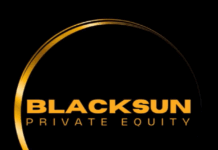Public Radio International’s weekly radio show “This American Life” retracted a report on conditions of Chinese workers who make Apple products.
Said the show, from its website: “We’ve discovered that one of our most popular episodes contained numerous fabrications. This week, we detail the errors in Mike Daisey’s story about visiting Foxconn, which makes iPads and other products for Apple in China. Marketplace’s China correspondent Rob Schmitz discovered the fabrications.” Schmitz is the reporter from American Public Media’s “Marketplace.” He found that Daisey’s translator disputed much of his account.
This American Life airs on more than 500 stations to about 1.8 million listeners. It’s produced by Chicago Public Media and distributed by Public Radio International. The particular program was downloaded 888,000 times, making it the most popular in the broadcast’s history. It prompted a listener to start a petition calling for better working conditions for Apple’s Chinese employees.
The broadcast, which first aired 1/6, focused on working conditions at Foxconn Technology Group. It centered on a monologue by Mike Daisey that contained statements later disputed and shown to be falsified.
“Daisey lied to me and to ‘This American Life’ producer Brian Reed during the fact checking we did on the story,” Host Ira Glass said in the statement. “That doesn’t excuse the fact that we never should’ve put this on the air. In the end, this was our mistake.”
After the initial broadcast focused on Daisey’s work, Schmitz began questioning its validity. “Marketplace had done a lot of reporting on Foxconn and Apple’s supply chain in China in the past, and Schmitz had first-hand knowledge of the issues,” said Glass.
During the fact-checking process, Daisey lied about the name of his interpreter and said he had no way to reach her, because her mobile phone number no longer worked.
“At that point, we should’ve killed the story,” Glass said. “But other things Daisey told us about Apple’s operations in China checked out, and we saw no reason to doubt him.”
Contested information in the broadcast includes the number of factories Daisey visited, how many workers he spoke with and whether certain ones were poisoned on an iPhone assembly line.
“He evokes this image of a very, sort of, totalitarian state, and there is some broader truth to the things that he puts in his monologue, but from what we found, there are many things that don’t just check out,” Schmitz told Bloomberg. “It is very compelling. It’s theater, right?”
Daisey, whose one-man show “The Agony and the Ecstasy of Steve Jobs” is currently running at the Public Theater in New York, responded to the retraction in a personal blog, saying, “I stand by my work.”
“’This American Life’ is essentially a journalistic - not a theatrical - enterprise, and as such it operates under a different set of rules and expectations,” Daisey wrote. “For this reason, I regret that I allowed ’This American Life’ to air an excerpt from my monologue. What I do is not journalism.”
Daisey’s show centers on working conditions at plants that make products sold by Apple and other electronics manufacturers. Apple has begun subjecting factories of its suppliers to audits by an independent labor group following employee suicides and injuries and criticism from China Labor Watch, which cited instances of harmful conditions.
“I am happy that the truth prevails, I am glad that Mike Daisey’s lies were exposed,” Louis Woo, a spokesman for Taipei- based Foxconn, told Bloomberg. “But I don’t think that the reports about this have gone far enough to find out what exactly is the truth.”



